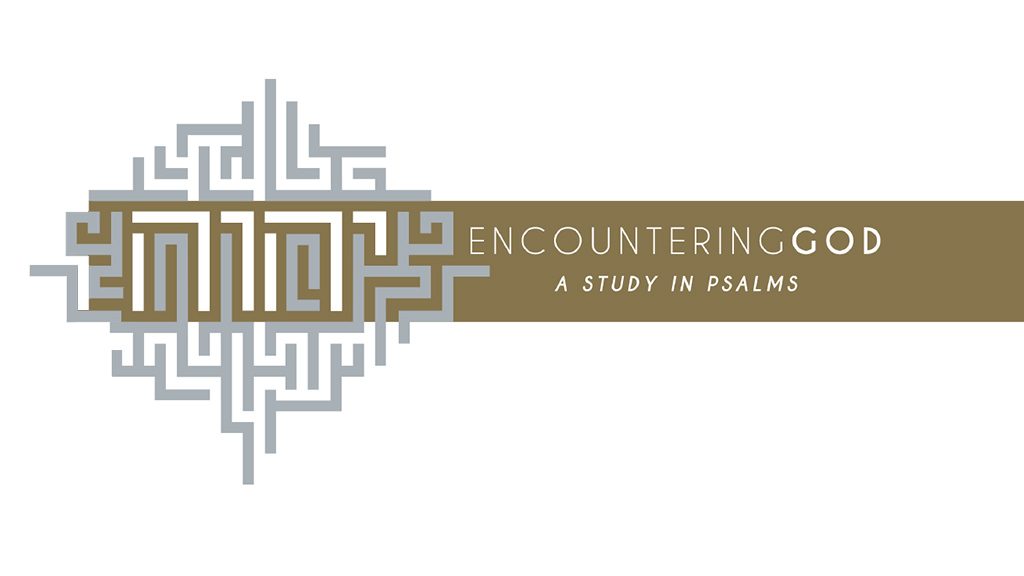Learn about Bob Jones University
Psalm 1 is called the preamble to the book of Psalms. That is, it serves as an introduction to the entire book. What is said in Psalm 1 is relevant to all the rest of the book of Psalms. Charles Spurgeon viewed it this way:
The matter of the first Psalm, which may be looked upon, in some respects, as the text upon which the whole of the Psalms make up a divine sermon.[1]
The psalms begin with these words: “Blessed is the man.” In Psalm 1, God addresses man’s most basic question: How can I be happy (blessed) in this life?
Is this true? Does God really want us to be happy? Absolutely! And this happiness is not temporary, but perpetual. The word translated blessed is plural in the original Hebrew. That is, it means perpetual blessings. It can be read blessednesses or happinesses.
So how can I be happy, truly happy? Psalm 1 is called a wisdom psalm because we learn that happiness results from our choice to follow God’s direction of life. In this psalm the writer sets forth two ways or two directions in life. One is the right way that leads to happiness, and the other is the wrong way that leads to misery.
The Right Way
Psalm 1:1–3
Blessed is the man that walketh not in the counsel of the ungodly, nor standeth in the way of sinners, nor sitteth in the seat of the scornful. But his delight is in the law of the Lord; and in his law doth he meditate day and night. And he shall be like a tree planted by the rivers of water, that bringeth forth his fruit in his season; his leaf also shall not wither; and whatsoever he doeth shall prosper.
Psalm 1 captures a fundamental teaching found in both the Old and New Testaments. In the Old Testament God teaches His people that one’s choice will determine both the direction and the outcome of your life.
I call heaven and earth to record this day against you, that I have set before you life and death, blessing and cursing: therefore choose life, that both thou and thy seed may live. (Deut. 30:19)
In the New Testament, Jesus’ message to the crowds is to choose the right way in life:
Enter ye in at the strait gate: for wide is the gate, and broad is the way, that leadeth to destruction, and many there be which go in thereat: because strait is the gate, and narrow is the way, which leadeth unto life, and few there be that find it. (Matt. 7:13–14)
Choosing the Right Path
First, in Psalm 1:1 we learn that happiness comes by choosing to walk on a righteous path. This determination is directly connected to other people. Each line in this verse tells us to avoid the wrong kinds of interpersonal relationships. Your friends make all the difference in your life.
Notice what this verse says: “Blessed is the man that walketh not in the counsel of the ungodly.” Choosing the righteous path includes refusing advice from those who hold godless values and whose moral choices violate the laws of God.
The second line goes a step further: “nor standeth in the way of sinners.” It is one thing to listen to wicked counsel. It is another to decisively side with that viewpoint. Instead, the happy person refuses to follow the worldly crowd. You don’t see him “hanging out” with those who pursue sin as a lifestyle.
Finally, he refuses to sit and associate with those whose conversations mock and curse God: “nor sitteth in the seat of the scornful.” If you want to be miserable, make your best friends those who are scornful, critical and disrespectful.
The three verbs—walk, stand and sit—show the slippery slope of evil. Evil is not passive. It is ever descending. The longer you go, the worse you get. A pattern of evil choices causes a downward spiral in character that leads to destruction.
Hungering for God’s Word
Second, Psalm 1:2 declares that happiness comes by developing a strong appetite for God’s Word. We learn to enjoy the Bible by nurturing the disciplined habit of meditation.
Meditation involves a 24/7—“day and night”—focus on the Scripture. This means seeking to understand the Bible’s meaning as well as its application to us personally. The Spirit of God makes the Word of God satisfying to the soul of man. The Scriptures are “sweeter than honey” (Ps. 119:103) and “more to be desired [desirable] are they than gold” (Ps. 19:10).
In some contexts the word meditate can be translated growl or groan or moan. It conveys the idea of muttering. Perhaps you know someone who walks around mumbling to himself. We tend to view such behavior as socially odd. But the reality is that all of us talk to ourselves inside our heads all the time. There is a mental discussion going on continuously. Some people simply express parts of their dialogue audibly. This mental conversation is meditation. God blesses us as we mull over His words day and night.
The reason this way of life makes one so happy is that is fulfills the purpose for which we were created. God’s first command to man was to “be fruitful” (Gen. 1:28). Psalm 1 describes the happy man as being “like a tree planted by the rivers of water, that bringeth forth his fruit in his season; his leaf also shall not wither; and whatsoever he doeth shall prosper” (Ps. 1:3).
Fruit bearing is the result of deep roots’ finding an abundant supply of nourishment from underground streams of water. God’s Word is an all-sufficient, eternal supply of empowering grace for all of life. Even during difficult, seemingly barren times, the Word will sustain life.
A fruitful life is a blessed life. So David states that God’s way to happiness is being separated from the world, saturated with the Word, and fruitful and successful in doing God’s will.
The Wrong Way
Psalm 1:4–6
The ungodly are not so: but are like the chaff which the wind driveth away. Therefore the ungodly shall not stand in the judgment, nor sinners in the congregation of the righteous. For the Lord knoweth the way of the righteous: but the way of the ungodly shall perish.
David goes on in verse 4 to contrast the way of the righteous with the way of the ungodly: “the ungodly are not so.” Spurgeon makes a powerful point when he notes that the Hebrew proposes a double negative: “‘Not so the ungodly, no so.’ Oh! how terrible is it to have a double negative put upon the promises! and yet this is just the condition of the ungodly.”[2]
Ungodliness will never, never prosper! In the end ungodly people’s lives are deemed as “chaff.” In other words, they are worthless, lifeless and useless. They will be driven away by the wind of God’s judgment. They will not dwell with the people of God in the congregation of the righteous (Ps. 1:5).
At the end of the passage, the psalmist sets forth two directions—the way of the righteous and the way of the ungodly; two decisions—to meditate on God’s Word or to listen to ungodly counsel; and two destinies—the righteous will enjoy God’s presence forever, but the ungodly will perish.
[1] C.H. Spurgeon, The Treasury of David (Peabody, MA: Hendrickson Publishers, 1988), 1:1.
[2] Spurgeon, 1:3.
Listen to Dr. Pettit’s chapel message on Psalm 1:
Join us for chapel every Monday through Thursday at 11 a.m. EST.








